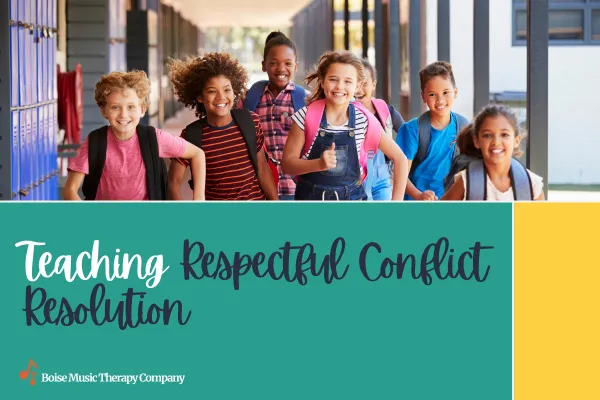
Teaching Respectful Conflict Resolution

Navigating conflicts and disagreements is an essential life skill, but for kids with unique learning styles, it can be especially challenging. These children may process information differently, have unique communication styles, and experience emotions intensely. As caregivers, it's crucial to provide them with the tools and support they need to handle conflicts respectfully. In this blog post, we'll explore effective strategies and techniques for teaching children how to navigate conflicts in a considerate and constructive manner.
Building a Foundation of Empathy
Empathy is the cornerstone of effective conflict resolution. Encourage children to understand and acknowledge the perspectives and feelings of others. Use stories, role-playing, and real-life examples to help them grasp the concept of empathy.
Providing Clear Expectations
Children often thrive with clear, explicit instructions. When teaching conflict resolution, break down the process into manageable steps. Use visual aids, social stories, or flowcharts to illustrate the steps involved in resolving conflicts.
Utilizing Visual Supports
Visual supports can be incredibly beneficial for children. Create visual cue cards or diagrams that outline the steps of conflict resolution. These can serve as a reference during moments of tension, providing a visual reminder of the process.
Role-Playing Scenarios
Role-playing allows children to practice conflict resolution in a safe, controlled environment. Create scenarios that mimic real-life situations they may encounter, and guide them through the process step by step. This hands-on approach helps build confidence and reinforces the skills they've learned.
Emphasizing Nonviolent Communication
Teach children the principles of nonviolent communication. This involves expressing feelings and needs clearly and without blame, and actively listening to others' needs. Provide examples of "I" statements and encourage them to use this language when communicating their feelings.
Sensory Considerations
For some individuals, sensory sensitivities can play a significant role in conflicts. Be aware of their sensory needs and create a calming environment when discussing conflicts. Offer sensory tools or breaks if necessary to help them regulate their emotions.
Encouraging Self-Advocacy
Empower children to speak up for themselves. Teach them how to assert their needs and boundaries in a respectful manner. Provide scripts or phrases they can use to express themselves effectively.
Celebrating Progress
Recognize and celebrate small victories in conflict resolution. Positive reinforcement and praise can be powerful motivators for children. Encourage them to reflect on their successes and acknowledge their growth in handling conflicts.
Teaching children how to handle conflicts respectfully requires patience, understanding, and tailored support. By providing clear expectations, utilizing visual supports, and emphasizing empathy, we can empower children to navigate conflicts with confidence and consideration. Remember, every child is unique, so it's essential to adapt these strategies to suit individual needs.
